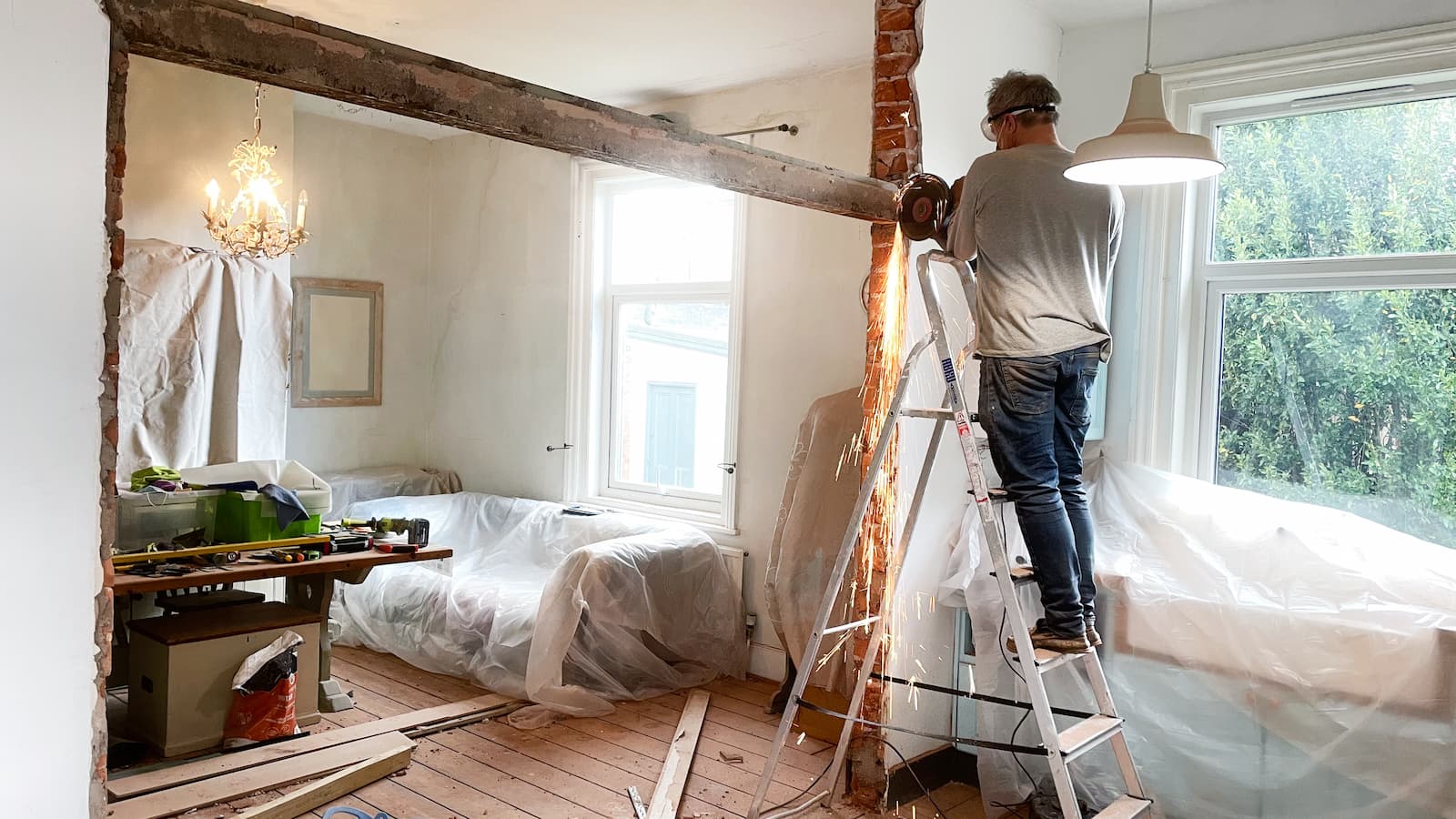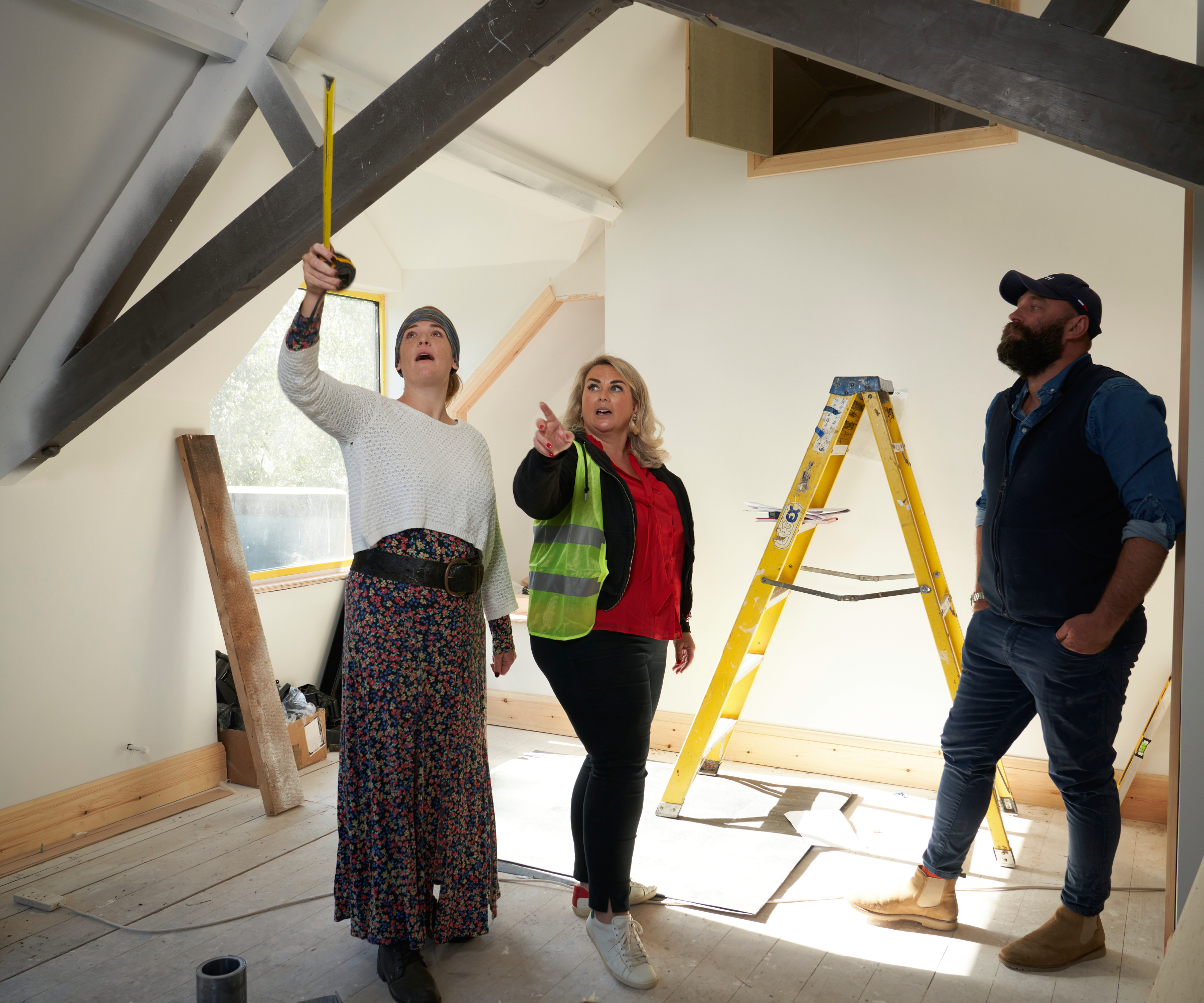Warning that some DIY projects can invalidate your home insurance policies
A study from Go.Compare reveals that homeowners are taking risks by carrying out renovations themselves without checking if they need additional insurance cover

Homeowners across the UK are being cautioned that their DIY renovation projects could potentially void their insurance coverage.
According to a survey by Go.Compare, nearly a quarter of those planning home renovations intend to proceed without professional assistance, while one in ten will take on these projects without any insurance protection.
We take a look at the survey as well as looking at what types of DIY project may require notifying your insurance company or buying additional cover when renovating a house.
Over 240,000 leaving themselves at risk
A recent survey reveals that one in ten Brits planning DIY home renovations this year are uninsured, leaving an estimated 245,870 UK households exposed to potential accidents and damages without any financial protection.
The study, conducted by Go.Compare Home Insurance, surveyed the nation's renovation plans for the coming year and cross-referenced the findings with ONS data on UK households, highlighting the significant financial risks some are taking.
The survey also revealed that of the one in three homeowners planning to renovate in 2024 a quarter (25%) are planning to do the work themselves, potentially opening themselves up to further risks.
Even those with home insurance could be at risk
It was also revealed in the study that even those with home insurance can still be at risk of financial hardship if you carry out work without telling your insurance provider.
Get the Homebuilding & Renovating Newsletter
Bring your dream home to life with expert advice, how to guides and design inspiration. Sign up for our newsletter and get two free tickets to a Homebuilding & Renovating Show near you.
Nathan Blackler, home insurance expert at Go.Compare, said: “It’s always important to notify your insurance company of any plans to renovate the home, especially if it involves major structural changes, as it could significantly affect the value of the property.
“Some policies include cover for a certain extent of renovations, but if not, it’s worth purchasing the necessary additional cover for the duration of the work. When contacting your insurer, be clear on the exact projects you have in mind, as well as the approximate duration of the renovations, and make sure they’re kept updated on any changes.”
The insurance comparison site cautioned that completing home renovations without certified professional help could void any insurance claims in the event of an accident or damage.
Blackler added: “If you’re looking to save money by going down the DIY route, and you lack additional cover like accidental damage protection, your insurance is highly unlikely to cover any disrepair caused during the renovation. It’s worrying to see so many households taking this risk, as their attempt to save money could cost them a lot down the line."
What renovations should you/should you not tell your insurance provider?

If you're planning major structural renovations, such as an extension, loft conversion, or garage conversion, you must inform your home insurer.
Other changes you should notify your insurer include:
- Alter your home's structural layout
- Removing a load-bearing wall
- Installing a new roof
- Adding double-glazing or triple-glazing
- Undertaking major cosmetic renovations, like replacing a kitchen
- Modifying the wiring or plumbing
- Installing new cladding
According to Go.Compare most standard home insurance policies do not cover significant structural work, and failure to notify your insurer could invalidate your policy, leaving you unable to make claims.
Only 23% of home insurance policies include minor building works without requiring notification so anything such as painting, fitting wall units, replacing carpets, retiling, or wallpapering typically doesn't require additional coverage.
However, for peace of mind contact your insurer before starting any renovation to discuss the necessary coverage.

News Editor Joseph has previously written for Today’s Media and Chambers & Partners, focusing on news for conveyancers and industry professionals. Joseph has just started his own self build project, building his own home on his family’s farm with planning permission for a timber frame, three-bedroom house in a one-acre field. The foundation work has already begun and he hopes to have the home built in the next year. Prior to this he renovated his family's home as well as doing several DIY projects, including installing a shower, building sheds, and livestock fences and shelters for the farm’s animals. Outside of homebuilding, Joseph loves rugby and has written for Rugby World, the world’s largest rugby magazine.
